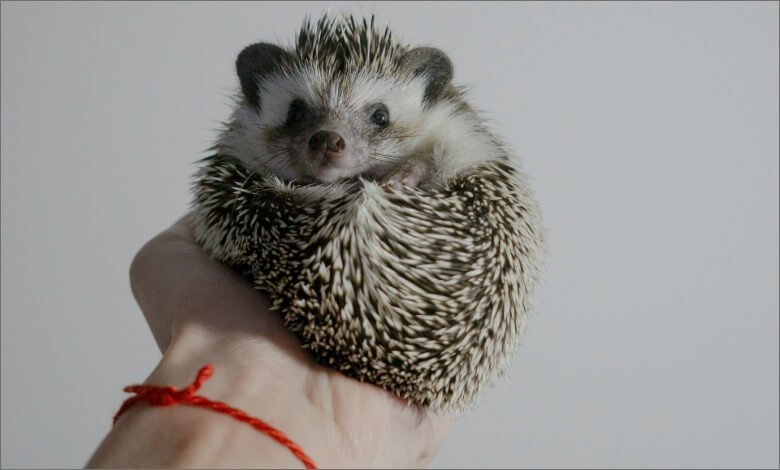
The diet of a hedgehog as a pet is one of the trickiest issues to get right. As a result of its poor adaptation to life in captivity, it frequently struggles with obesity or even fatty liver.
Due to its size and interesting appearance, the hedgehog has grown to be a common exotic pet. This mammal is less sociable than a dog or cat because it is not a domesticated species. One of the reasons a hedgehog as a pet might not be a wise choice is due to this.
In their natural habitats, hedgehogs can be found in New Zealand, Europe, Asia, and Africa. They are all members of the Erinaceidae family, which includes the moonrats. Find out if having a hedgehog as a pet is possible by reading on.
How do hedgehogs behave?
Hedgehogs are typically small mammals that range in size from 4 to 12 inches (or 10 to 30 centimeters) in length. Their distinctive feature is an oval body covered in numerous defensive rigid, hollow quills (or spines). Similar to how turtles defend themselves by retreating into their shells, they retract all of their limbs and expose their quills when they feel threatened.
The face of a hedgehog is long and ends in a short trunk. This gives them a cute appearance that goes well with their small limbs. Additionally, despite having a rough and hard back, their belly is softer in texture.
Hedgehog conduct
Hedgehogs are nocturnal creatures that spend the majority of the day sleeping before emerging at night to hunt and forage. They tend to live alone and only congregate with members of their own species during mating season. It is not advisable to keep more than one hedgehog as a pet because they are aggressive and territorial, and they won’t typically allow other animals to come too close to their territory.
These tiny mammals are extremely sensitive to sounds and potent smells, so any abrupt change in their environment may stress them out. This makes handling them continuously or for extended periods of time a bad idea. If you do, it might result in severe health issues and even death.
Hedgehogs prefer to reside in quiet, dark settings in general. It’s even possible that during its initial few days in its new home, the animal will hide and avoid coming out much. They might also frequently show their quills, but this is only done to defend themselves from someone they perceive as an aggressor.
Food
Since they are omnivorous, hedgehogs don’t have many food-related issues. In fact, there are companies that produce food for this mammal in the form of specialized feed. The diet must also be slightly varied, and fresh foods like fruits and vegetables must be added. Following are a few examples of fresh foods that can be given to this pet:
- Apples without seeds
- Bananas
- Broccoli Carrots
- Cooked chicken
- Crickets
- A cooked egg
- Worms
- Kiwis
- Papaya Pumpkin
- Spinach
- Watermelon
- Asparagus
- Watermelon.
Since the hedgehog’s natural diet is primarily composed of animal protein, both insects and animal-derived meat are necessary components of its diet. But it can survive on a diet of feed with the occasional serving of fruits or vegetables. Hedgehog food can also be used in place of cat food because it contains similar nutrients.
Health
Throughout their lives, these animals are prone to a variety of illnesses. These are some of the most typical:
- Cancer
- Obese liver
- Cardiovascular conditions
- Skin conditions (dryness)
- Obesity
- Respiratory conditions
- Issues with the digestive system
- Gingivitis
The issue with hedgehogs is that there aren’t many specialists, despite the fact that many of these pathologies are quite common and relatively simple to treat in other animals. They run the risk of passing away from one of these illnesses if it progresses.
Is keeping a hedgehog acceptable?
The country in which you live has a significant impact on whether keeping a hedgehog as a pet is legal. In Mexico, for instance, there is no specific law that forbids keeping them in captivity, whereas in a European nation like Spain, it is illegal to keep the following species:
- Pygmy hedgehog from Africa
- Hedgehog with Egyptian ears
- American hedgehog
- Dark hedgehog





